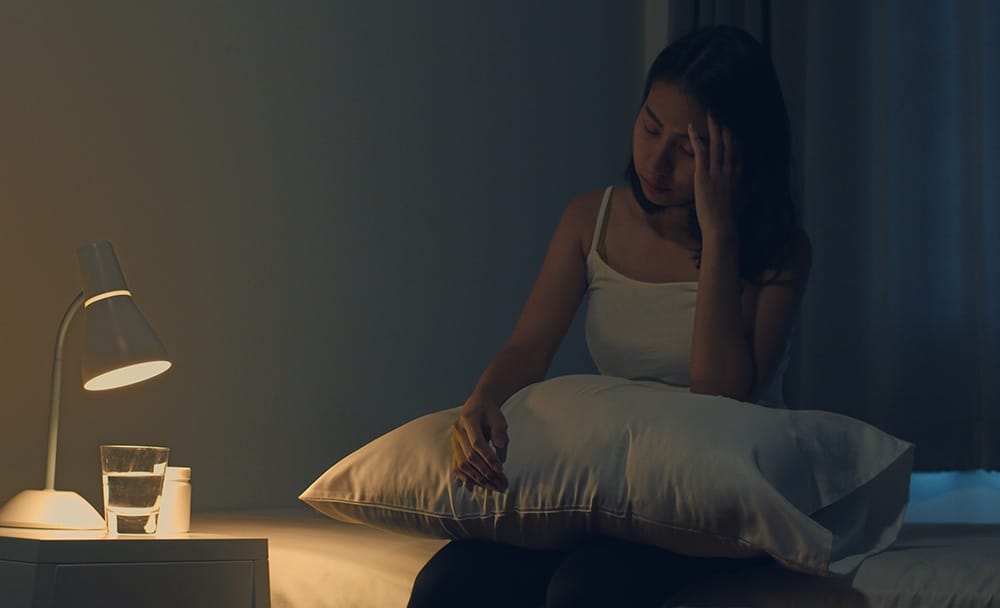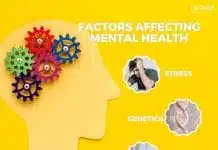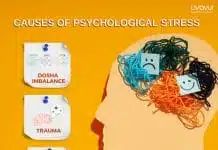
“Although the world is full of suffering, it is also full of overcoming it. ” – Helen Keller.
Mental health disorders are quite complicated and can take many forms. All of us have experienced mood swings from time to time. However, severe mood disorders over a prolonged period of time can be quite concerning. Depression is one such condition that is characterised by symptoms such as a persistent feeling of sadness, lack of interest, and lethargy.
These depression symptoms may range from mild to severe and have a tendency to interfere with the victim’s day-to-day activities. Going through mood disorders due to depression and anxiety may often adversely impact relationships and in severe cases, even pave the way for chronic health conditions.
More often, people may hide the signs of depression from their near and dear ones, and in other cases, the depression symptoms may go completely unnoticed even by those suffering from it.
7 Tell Tale Signs of Depression
1. Constantly Berating Themselves
Having low self-esteem and being critical of one’s abilities may be one of the most difficult to spot symptoms of depression. Studies have shown that in most cases, individuals suffering from depression may silently but constantly berate themselves for not being the best.
2. Excessive Anxiety
This is one of the common signs of depression and anxiety disorders. In this case, victims are often concerned about situations that are not going to be in their control. This situation is marked by excessive worrying that may take a toll on the individual’s health and also cause deteriorating conditions like paranoia and stress.
3. Drastic Changes in Appetite
If a loved one, whom you suspect to be hiding the signs of clinical depression, goes through a sudden loss of appetite, things can turn quite serious. Often, loss of appetite is associated with illnesses and acute stress. On the other hand, individuals suffering from depression may also tend to overeat and put on a considerable amount of weight over a short period of time.

4. Changes in Sleep Pattern
Studies have revealed that most individuals who experienced depression underwent massive changes in their sleep patterns. Due to the constant feeling of sadness, paranoia, helplessness, disinterest and lethargy, individuals suffering from depression may often struggle to get out of bed.Others may also complain of being sleep deprived and may suffer from insomnia. Watch out for your loved ones exhibiting major changes in their sleep habits, such as sleeping during the day and staying awake at night.
5. Profound Disinterest
This is one of the surest markers of depression. Watch out for signs of a lack of interest in socialising, or even participating in activities that they would earlier enjoy. Individuals experiencing depression may suffer from symptoms like social withdrawal, reduced emotional capabilities, long periods of lack of verbal interactions, and a loss of libido or disinterest in physical intimacy.
6. Drinking More Alcohol
Hitting the bar for happy hour is a socially acceptable way to cope with stress, which makes underlying depression more difficult to spot.A common sign of hidden depression is that someone may turn to drink more often or increase the amount of alcohol they consume in one sitting.
7. Forcing a ‘Happy Face’
In some cases, the bigger the smile, the bigger the depression it hides. “Toxic positivity” is a buzzword as of late — and for good reason. An overly positive attitude, a perfectly manicured highlight reel on Instagram, or appearing cheerful in public may be a mask to cover up depression.
While it can feel overwhelming when someone close to you is experiencing depression, there are numerous ways you can help them
These 5 tips can help you provide support for a loved one dealing with depression.
1. Start a Conversation
Initiate a conversation with your loved one by expressing your concerns and letting them know you are there for them. Encourage them to share their feelings and assure them of your support throughout their journey.
2. Become a Good Listener
When people get depressed, they often feel very isolated. They may feel that they have no one they can talk to about their problems. Be there for your friends and let them do the talking. Encourage them to talk about their feelings, but don’t try to offer any immediate solutions. Your support is the most important thing that you have to offer.
3. Be Patient
It can be very frustrating dealing with a loved one who has depression. There may be times when you would rather walk away and get on with your own life. Don’t lose your patience, though. Don’t desert a friend when they need your help the most.
4. Encourage Them to Get Help
If a person is very depressed, they must seek professional advice. A person with severe depression may also need to take medication to ease their condition. Encourage your friend to talk to their doctor.
5. Stay in Touch
Letting your friends know you still care about them as they continue to work through depression can help.
Even if you aren’t able to spend a lot of time with them regularly, check in regularly with a text, phone call, or quick visit
Takeaway:
If you suspect that you or someone you care about is suffering from depression, it’s best to get help and offer a helping hand. In today’s day and age, depression can be easily cured with the right kind of psychological counselling, medication and psychotherapy. Depending on the severity and degree of the depression, the treatment may take a few weeks or even much longer. Ayurvedic scientific studies have shown that the imbalances of the Doshas or the elements that govern the life forces can lead to acute emotional and mental issues. In this regard, Ayurveda recommends herbs such as Brahmi, Ashwagandha, Shankhapushpi, Vasha, Bhringaraj, Mulethi and Haritaki. Besides consuming these medicinal herbs, Ayurveda also recommends yogic practices of Asana, Pranayama and meditation.
Often, people with depression may choose to hide their symptoms for fear of being judged, or due to a sense of guilt, for being worried about being considered weak, and most commonly, to avoid the stigma associated with being depressed. It is important to know that individuals can overcome depression and deal with depression if only they reach out to their friends and family.
FAQs
1. Can you permanently treat depression?
For some people, experiencing symptoms of depression is temporary for others, it comes and goes. There is no magic cure for depression, but it’s treatable, manageable, and doesn’t have to stop you from living a full and happy life.
2. What is the root cause of depression?
There’s no single cause of depression. It can occur for a variety of reasons and it has many different triggers.
3. What gender is depression most common?
Researchers have known for years that women are about twice as likely to be diagnosed with depression as men, with depression being the leading cause of disease burden among women.
References:
- https://psychcentral.com/depression/hidden-signs-of-depression#alcohol-use
- https://www.healthline.com/health/how-to-help-a-depressed-friend#handling-a-crisis
- https://www.everydayhealth.com/depression-pictures/ways-to-help-loved-one-with-depression.aspx
- https://www.intrepidmentalhealth.com/blog/10-ways-you-can-help-a-friend-with-depression
- creening.mhanational.org/content/depression-curable/#:~:text=For%20some%20people%2C%20experiencing%20symptoms,a%20full%20an
- https://www.nhs.uk/mental-health/conditions/depression-in-adults/causes/#:~:text=There’s%20no%20single%20cause%20of,often%20combine%20to%20trigger%20depression.
- https://www.hopkinsmedicine.org/health/conditions-and-diseases/depression-his-versus-hers#:~:text=Researchers%20have%20known%20for%20years,of%20disease%20burden





















This is the right blog for anyone who wants to find out about this topic. You realize so much its almost hard to argue with you (not that I actually would want…HaHa). You definitely put a new spin on a topic thats been written about for years. Great stuff, just great!